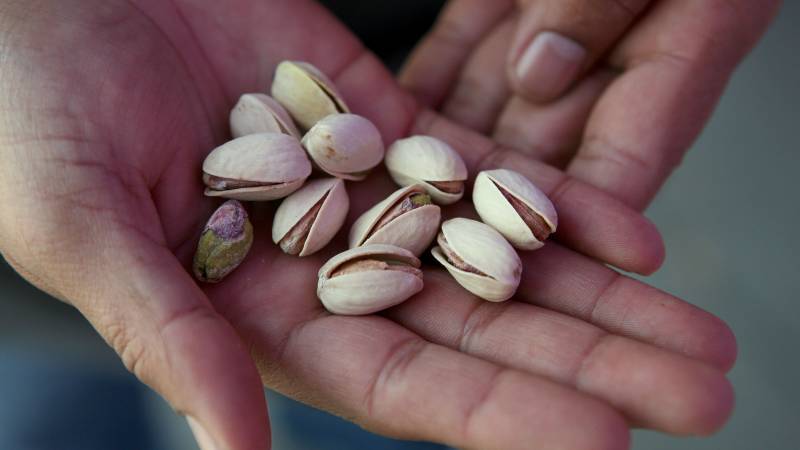Remigio Ramirez, who is in charge of machinery maintenance at a pistachio processing plant, repeatedly tried to tell his supervisors that he was sick. But they wouldn’t let him go home or take time off to be tested for the coronavirus.
“I started feeling sick like three days before (the diagnosis) and I asked my supervisor to let me go home and he said there was a lot of work and not enough employees,” Ramirez said. “Then I made an appointment to go to the doctor, asked permission again, but by the time I was let off work, the clinic was closed.”
Ramirez, 54, has worked at the Primex Farms plant, located in Wasco in the San Joaquin Valley, for more than 12 years. The company, which processes more than 60 million pounds a year of nuts, has about 400 year-round packing plant workers, many of whom earn minimum wage.
Despite dozens of infections like Ramirez’s, the Primex plant did not shut down until June 26. That was ten days after Ramirez said he tested positive with the coronavirus. And 16 days after the first case of COVID-19 was confirmed at Primex.
The plant reopened with limited operations on July 1 after voluntarily shutting down for five days, employees said. But as they return to work, the workers said they are still worried and do not feel safe.

